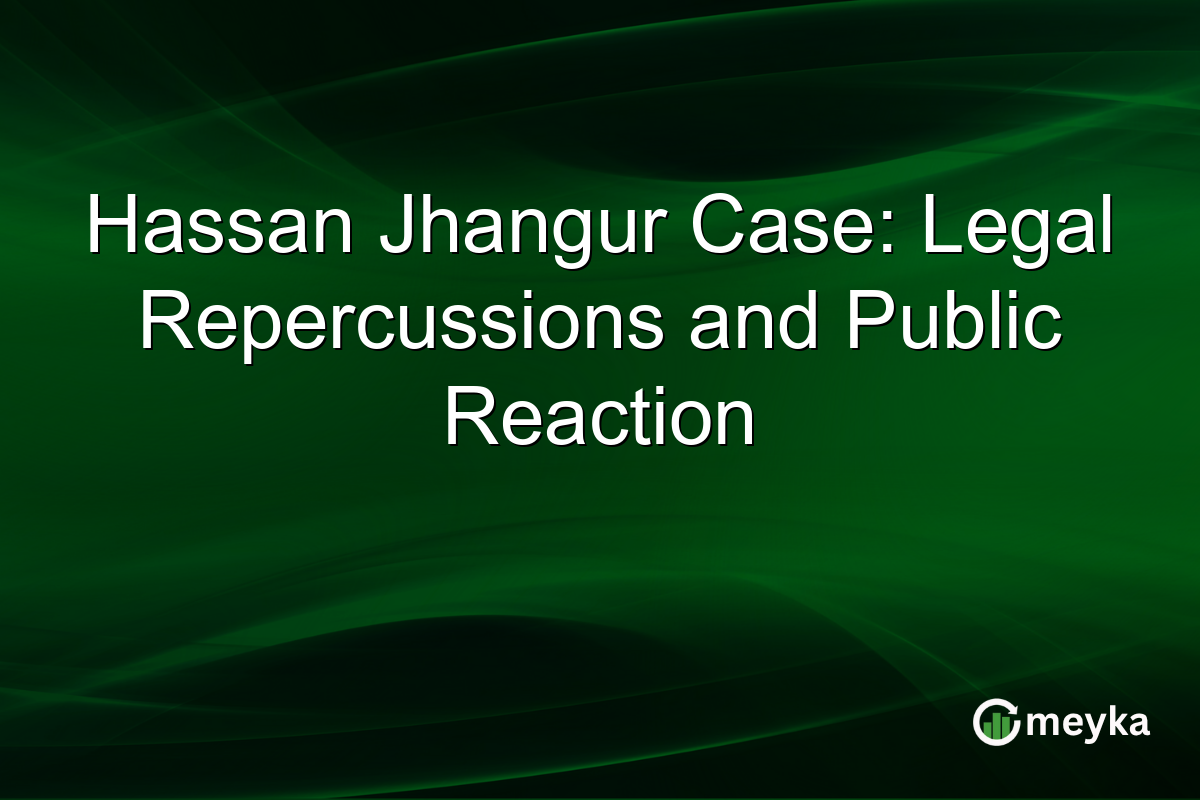Hassan Jhangur Case: Legal Repercussions and Public Reaction
The Hassan Jhangur case has riveted public attention, particularly following recent developments in Sheffield murder sentencing. This case exposes how legal outcomes alter societal norms and touch on sensitive issues like violence and justice. As the UK court judgment unfolds, it not only affects those directly involved but also shapes public perception and future legal applications.
Continue Reading on Meyka
This article is available in full on our main platform. Get access to complete analysis, stock insights, and more.
Read Full Article →





